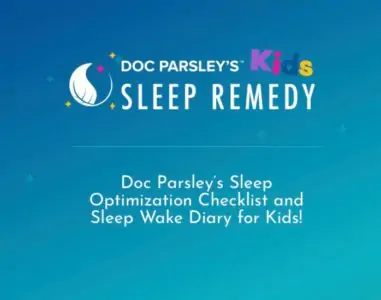Kids Sleep Deprivation Is On The Rise- How Can We Help?
Kids Sleep Deprivation Is On The Rise- How Can We Help?
Ensuring kids are getting the quality and quantity of sleep they need is becoming a serious concern across the US. In fact, according to the American Academy of Pediatrics, 25 to 50% of children are experiencing sleep problems. This raises the concern for our children’s mental and physical health. With kids experiencing more sleep deprivation, it’s important learn how critical sleep is for development and overall health and wel-being. Sleep is an essential building block for maintaining all facets of health in all humans. When our kids are sleep-deprived, it also impacts the parents and the entire family.
“Chronic sleep loss amongst youth is a major public health crisis globally and is associated with a multitude of physical and mental health issues.” –Dr. Hoi See Tsao
This raises some important questions:
- Why are more children developing sleep problems?
- What happens when children don’t get enough sleep?
- How can we help our children get the rest they need to grow up strong and healthy?
Sleep plays a crucial role in the development of young minds. In addition to having a direct effect on happiness, research shows that sleep impacts:
- Alertness
- Attention
- Cognitive performance
- Mood
- Resiliency
- Vocabulary acquisition
- Learning and memory.
Why Are More Kids Developing Sleep Problems?
There is no doubt that the COVID-19 pandemic has turned the worlds of our children upside down. Sleep deprivation is becoming more and more common amoung kids. The small freedoms that allowed kids to get outdoors, play with friends, and expend the energy they needed to feel mentally and physically satisfied were completely disrupted.
Melisa E. Moore, Ph.D., a psychologist in the Department of Child and Adolescent Psychiatry and Behavioral Sciences at Children’s Hospital of Philadelphia, shared she had an influx of cases of kids worrying about COVID and the impact of the pandemic on their families and their school. This leads to an increase in kids experiencing anxiousness, insomnia, sleep apnea, breathing problems during sleep, and other sleep-related concerns.
During COVID-19, kids spent more time on screens and less time in the sun than ever before. The lack of schedule and routine with school and sporting activities allowed children to fall into the habit of staying up later and sleeping in. All are major components in regulating the natural circadian rhythm of sleep.
Aside from COVID-19 and the changes in schedule and lack of daily routines, there are other factors that can cause sleep problems for kids.
- Getting a new sibling
- Teething
- Illness
- Being in a different place
- A new caregiver
- A change in schedule
- Allergies, colds, and ear
What Happens When Children Don’t Get Enough Sleep?
Children who are sleep deprived are more at risk to develop:
- Allergic Rhinitis and problems
- Weakened immune system
- Anxiety
- Depression.
- Cardiovascular risks
- Obesity
- Diabetes
- high blood pressure
A team of researchers from the American Academy of Pediatrics analyzed the 2016-2017 National Survey of Children’s Health from 49,050 parents of young people aged between 6 and 17 years old on how much sleep their kids were getting.
The survey measured if:
- The child was curious about new things
- They did all their homework
- Cared about doing well at school
- Were committed to finishing tasks
- Stayed calm and in control while faced with a challenge.
To no surprise, the result showed that those under 12 who didn’t get adequate sleep were less likely to be curious about learning, care about school, do their homework, and finish tasks. The older children had similar results.
“This research reinforces the importance of increasing efforts to maximize sleep sufficiency for children including addressing digital media usage, bedtime routines, and school duration and start times.” Dr. Hoi See Tsao (source).
How Can We Help Our Children Get The Rest They Need To Grow Up Strong And Healthy?
Let’s talk about sleep hygiene & age-appropriate routines
- Electronics & Screen Time- More screen time is directly correlated with more sleep problems for kids and adults. This holds more truth when screens are used closer to bedtime. The blue light from the screens disrupts the body’s natural production of melatonin ( the sleep hormone). Screen time also keeps our environmental stimulus high and the brain alert, which is the opposite of what we want before bedtime.
- Set regular bedtime/wake-up time
- Create consistent bedtimes and wake times every day of the week.
- Keep the bedroom cool, quiet, and comfortable.
- Create a predictable bedtime routine and repeat nightly ( brush teeth, read a book, talk about the day).
- Nutritious/Balanced Diet- Avoid caffeine, large meals, and sugary treats before bedtime.
- Keeping the bedroom quiet, or using a white noise machine to mask outside sounds
- Exercise daily
Click here to download Doc Parsley’s Sleep Optimization Checklist and Sleep-Wake Diary for Kids!

Doc Parsley’s Sleep Remedy Kids Sleep/Wake Diary
‘Monkey See, Monkey Do’ still holds so much truth. Kids will imitate their parents to a certain extent when it comes to sleeping, so one of the best things you can do to help them develop a healthy sleep pattern is to keep one yourself.
“Sleep is crucial for pretty much everything. It should be considered as vital as exercise and diet. Schools and parents should be looking to support and encourage healthy sleep habits in children,”
Read more on 6 Tips Parents Ask About Kids’ Sleep & When Should I Stop Scheduling Nap Time.
